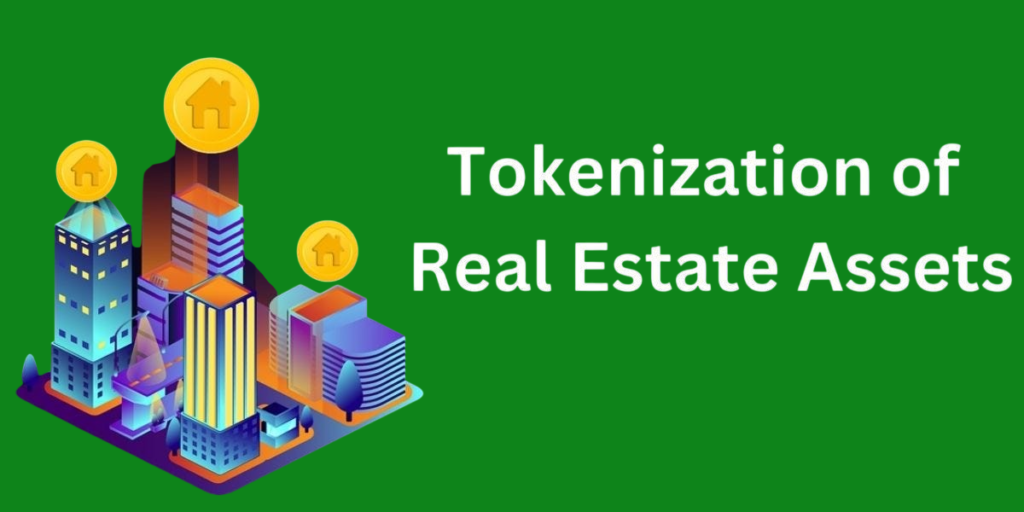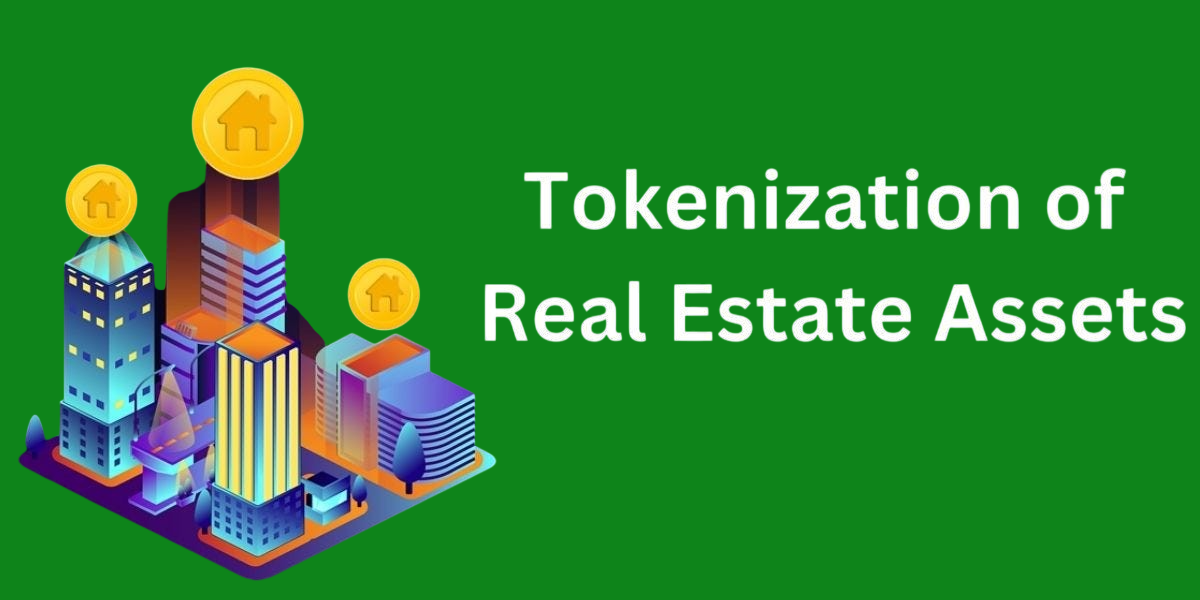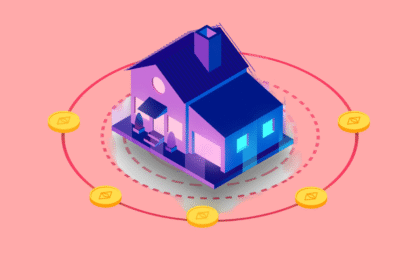
Real estate has traditionally been a symbol of wealth and financial stability. However, for many aspiring investors, the barriers to entry—such as high capital requirements, complex legal frameworks, and the need for extensive due diligence—make it an inaccessible dream. Real estate tokenization, an innovative concept driven by blockchain technology, is rapidly reshaping this narrative. By offering fractional ownership, tokenization is democratizing access to property investment, enabling individuals to invest in real estate assets with minimal capital while enjoying the benefits of ownership.
At its core, real estate tokenization converts the ownership of physical property into digital tokens stored on a blockchain. Each token represents a fraction of the property, allowing investors to buy, sell, and trade these shares seamlessly. This transformation aligns with the global trend of leveraging blockchain for secure, transparent, and efficient transactions. For small investors, this development represents an opportunity to diversify their portfolios without the heavy financial burdens traditionally associated with real estate.
This article delves deep into the benefits of fractional ownership, highlights the top tokenization platforms driving the revolution, and explores real-world examples of global adoption. By understanding these aspects, investors and industry professionals can grasp how real estate tokenization is not just a technological advancement but a paradigm shift in property investment.
What is Real Estate Tokenization?
Real estate tokenization is the process of dividing the ownership of a physical property into digital tokens using blockchain technology. Each token acts as a digital certificate of ownership, representing a fraction of the asset. These tokens can be bought, sold, or traded on blockchain-enabled platforms, making property investment more liquid and accessible.
The process typically involves:
- Property Evaluation: Determining the value and structure of the asset to be tokenized.
- Token Creation: Using blockchain technology to create digital tokens that represent ownership shares.
- Smart Contracts: Embedding legal and transactional rules into the blockchain to govern the buying and selling of tokens.
- Marketplace Listing: Enabling investors to purchase tokens through a secure online platform.
This innovative approach eliminates intermediaries, reduces transaction costs, and increases transparency. By leveraging these benefits, tokenized real estate is setting a new standard for how properties are bought and sold.
Benefits of Fractional Ownership Through Tokenization
1. Accessibility for Small Investors
Fractional ownership allows individuals to invest in real estate without the need for substantial upfront capital. For example, an investor can own a fraction of a luxury apartment or a commercial property by purchasing tokens worth as little as $100. This accessibility is particularly beneficial for millennials and first-time investors who were previously priced out of the market.
2. Enhanced Liquidity
Traditional real estate investments often require years to yield returns, making them illiquid assets. With tokenization, investors can sell their tokens on secondary markets whenever they need funds, ensuring greater flexibility and liquidity.
3. Portfolio Diversification
Real estate tokenization enables investors to diversify their portfolios geographically and across different types of properties, such as residential, commercial, or industrial. This reduces risk and enhances financial stability.
4. Transparency and Security
Blockchain technology ensures that all transactions are recorded in an immutable ledger, providing transparency and reducing the chances of fraud. Smart contracts further enhance security by automating processes and eliminating the need for intermediaries.
5. Lower Transaction Costs
The absence of brokers, legal intermediaries, and paperwork significantly reduces the cost of buying and selling properties. Tokenized real estate platforms streamline the process, making it cost-efficient for investors of all scales.
Top Platforms for Real Estate Tokenization
1. RealT
RealT is a U.S.-based platform that specializes in tokenizing residential properties. Investors can purchase tokens backed by rental properties and earn dividends in stablecoins.
2. Lofty AI
Lofty AI offers fractional ownership in rental properties with daily payouts. The platform uses AI-driven analytics to identify high-potential real estate investments.
3. Brickblock
Brickblock provides tokenized real estate opportunities globally. The platform connects investors with property developers and offers seamless transactions using blockchain.
4. Propy
Propy combines real estate tokenization with title registration services, making it a one-stop solution for blockchain-enabled property transactions.
Each of these platforms is paving the way for a decentralized real estate ecosystem, offering unique features to attract diverse investor profiles.
Global Adoption Examples
1. Dubai: A Tokenized Real Estate Hub
Dubai has been at the forefront of adopting blockchain in real estate. In 2022, a luxury property in the city was tokenized and sold entirely via blockchain. This transaction demonstrated the feasibility and scalability of tokenization in high-value markets.
2. United States: Rental Property Tokenization
Several U.S. cities, including Detroit and Miami, have seen the tokenization of residential rental properties. Platforms like RealT have enabled small investors to earn consistent rental income through fractional ownership.
3. Europe: Commercial Real Estate
In Germany, a prominent commercial building was tokenized and sold through Brickblock, showcasing the application of tokenization in large-scale projects.
4. Asia: Mixed-Use Developments
Countries like Singapore and Hong Kong are exploring tokenized real estate for mixed-use developments, attracting both local and international investors.
These global examples highlight the versatility and growing acceptance of real estate tokenization as a legitimate investment model.
Challenges and Future Outlook
Challenges
- Regulatory Uncertainty: Different countries have varying regulations regarding blockchain and tokenization, creating hurdles for widespread adoption.
- Market Volatility: Tokenized assets, like cryptocurrencies, can be subject to market fluctuations.
- Technology Barriers: The reliance on blockchain technology may exclude investors unfamiliar with digital wallets and token trading.
Future Prospects
Despite these challenges, the future of real estate tokenization looks promising. As governments and financial institutions recognize its potential, regulatory frameworks are evolving to support this innovation. Additionally, advancements in blockchain technology are likely to address security and scalability concerns, making tokenization a mainstream investment strategy.
Conclusion: Transforming Property Investment
Real estate tokenization is more than just a technological innovation; it is a transformative force democratizing property investment. By offering fractional ownership, tokenization bridges the gap between traditional real estate and modern financial markets, making it accessible to small investors and enhancing liquidity for seasoned players.
The benefits of this approach—ranging from diversified portfolios to reduced transaction costs—underscore its potential to redefine how we view property ownership. As platforms like RealT and Propy continue to gain traction and global adoption examples proliferate, the momentum behind tokenized real estate is undeniable.
In a world increasingly driven by digital solutions, tokenization represents the future of real estate. For investors looking to diversify their portfolios or for those taking their first steps into property investment, embracing this innovative model offers not just financial returns but a chance to participate in the evolution of the real estate market. Whether you’re a seasoned investor or a newcomer, the opportunities in blockchain-based real estate investments are vast and rewarding.






